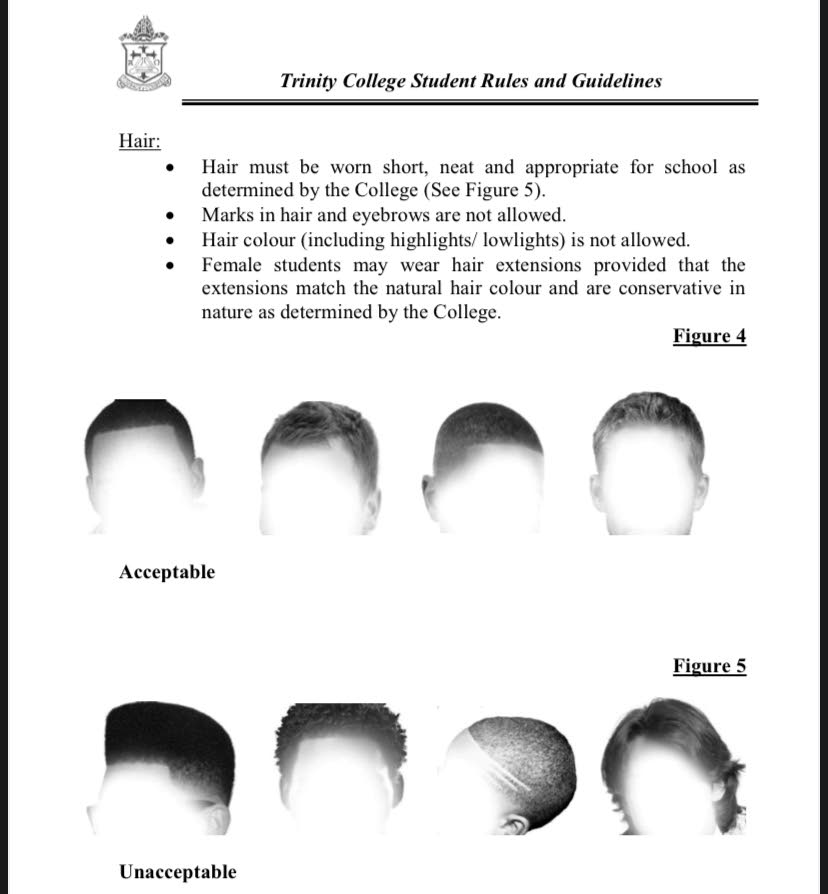Hair doesn't need fixing

THE EDITOR: Allow me to give my two-cents’ worth of what transpired at Trinity College, Moka graduation. Some, in defence of the college’s stance, are saying that the boys were warned and presented with images of appropriate hairstyles but refused to comply and were punished. We, therefore, need to examine what hairstyles the college determined as acceptable and why. In the same breath, it would have been interesting enough for them to present images of unacceptable hairstyles and why. Rules are not to be made in a vacuum.
The hair of African-descended people has always been a source of contention. Growing up in the newly independent TT in the late 60s, we as boys were touched by the pains of our sisters. The descriptions given to the hair of African-descended people were "natty", "knotty", "hard", "channa grain", "greng greng", "late for school". My sisters always had to "fix" their hair. I can still vividly picture my mother, with the hot iron comb on the green one-burner petrol stove, burning Esso Blue Flame kerosene; my sisters crying whenever the hot comb burned their scalps.
Today, mothers are still burning their daughters’ scalps by relaxing their hair because the hair of African-descended people always has to be "fixed". Today, there are family relatives who are accosted for wearing their natural hair and are being asked when they are going to "fix" that.
Today, young men, especially those who have studied West Indian History are beginning to question these rules and are not afraid to let the world know that telling them how to "fix" their hair is not on the cards. Their hair does not need "fixing"! It is neat and clean; and who determines neatness is subjective. Witness the hairstyles of professional basketball and football players in the English Premier League, and throughout Europe.
Hair is a sensitive issue, especially one that has been so denigrated and humiliated for centuries.
Some may argue that rules are rules, and the boys were stubborn, but so was Rosa Parks. Rosa Parks’ stubbornness has brought us, as a people to the front of the bus. Let us hope that these Trinity boys’ stubbornness would alter the mindset of those who believe that they have the authority and the right to "fix" other people’s hair.
LARRY HAREWOOD
Couva


Comments
"Hair doesn’t need fixing"